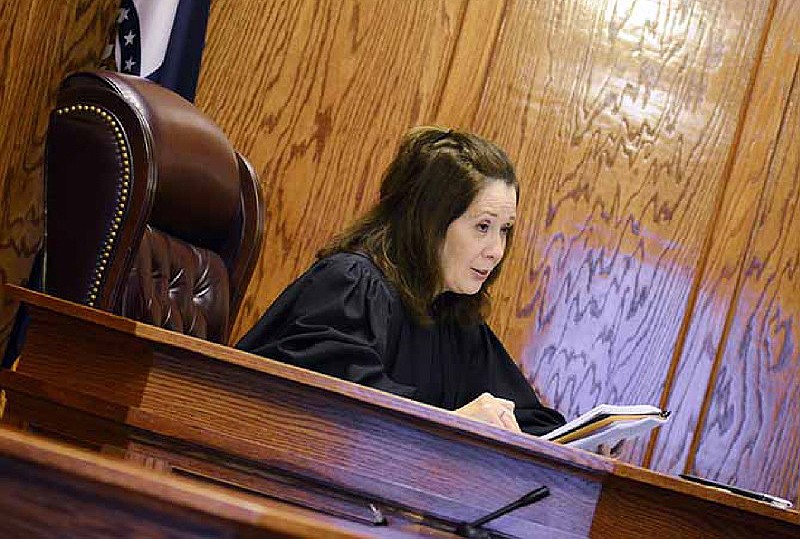Cole County Presiding Judge Patricia Joyce has scheduled a two-day trial starting Thursday in a lawsuit filed by a hopeful for a Missouri medical marijuana cultivation facility - whose application the state denied in December.
Paul Callicoat and his family are asking Joyce to order the Missouri Department of Health and Senior Services to reverse its decision.
The Callicoat family applied for a medical marijuana cultivation site called Sarcoxie Nursery Cultivation Center LLC. The Callicoats were among thousands of applicants who sought the right to grow, dispense, test, manufacture or transport the products in Missouri.
However, the state is limiting how many of each of the facilities it intends to license - based on criteria laid out by Missouri's medical marijuana amendment.
On Dec. 27, the DHSS section on medical marijuana regulation announced its selection of 60 sites that are to be cultivation facilities. The Sarcoxie Nursery was not among them. It was one of 554 sites that applied for the right to grow medical marijuana commercially - each providing a nonrefundable $10,000 application fee.
DHSS used a blind scoring system to rank applicants. It scored applicants based on agricultural experience, business experience, officers' qualifications and criminal records, letters of recommendation, business plans, security plans and other criteria.
Sarcoxie Nursery Cultivation Center ranked 236th based on the scoring criteria.
Callicoat sued DHSS over the decision to license only 60 cultivation facilities and over the scoring system.
During a hearing Tuesday, the Callicoats' attorney, Joe Bednar, told Joyce he had to make an open records request to get some information from DHSS and the Missouri Attorney General's Office, which is representing the agency in court. Because of this, he argued sanctions should be imposed on DHSS and the Attorney General's Office.
"I grew suspicious when they repeatedly were delayed in their responses to turn over materials that this court ordered them to," Bednar said. "They even provided some of these documents to parties that were outside of this lawsuit, that we had asked for, before we got to see them."
Bednar said his office found emails dating back to late 2018 which showed DHSS Director Dr. Randall Williams had conversations with people involved in the medical marijuana industry who told him Missouri would face a disastrous situation if the state followed what Oklahoma did in its licensing of such facilities.
"Oklahoma has a free and fully open program of medical marijuana distribution, and here 23 months into our system, we only have a couple of facilities operating," Bednar said. "This is a medicine that people need. The state should allow the market to decide which marijuana cultivation businesses should survive."
Assistant Attorney General Cheryl Schuetze said Bednar had received the documents he requested in a timely manner.
"They have had the majority of them since this summer," Schuetze said. "This is an attempt to avoid letting both sides explain what happened and how the rules were properly promulgated and are consistent with the Constitution."
Schuetze agreed with Bednar when he said the Missouri House of Representatives had asked DHSS for medical marijuana- related documents in May, but she said that was different from what Bednar requested a month later because they covered different topics.
"We used the standard practice of asking for protective orders, not to present embarrassing information as Mr. Bednar has inferred, but because there was personally identifiable information or information the Constitution has instructed the department to keep confidential," Schuetze said. "It's not to keep the plaintiffs from having these documents, but to say they can't go public."
Joyce did not say when she would rule on Bednar's motion but did say in court she found it troubling when the Attorney General's Office told her she could not see documents she normally would be able to see in such proceedings, she had to order the office to turn over the documents.

